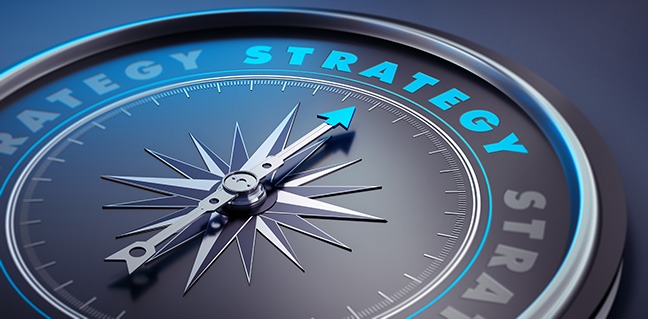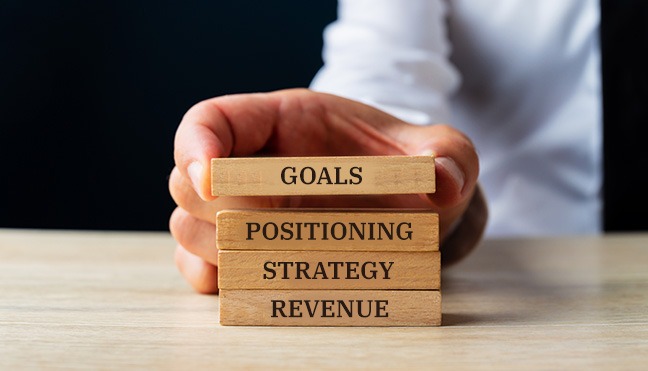Introduction
Digital technologies have brought about tremendous change in businesses all around the world. Be it marketing, sales, customer success, product development & management, or executive decision-making, digital technologies have made it much more efficient and effective than ever before. Competitive intelligence (CI) is a relatively recent business function to leverage the power of digital technologies. Competitive intelligence coupled with digital technologies like artificial intelligence (AI) and machine learning (ML) is making organizations more agile, increasing the intensity of competition. Consequently, the number of businesses investing in competitive intelligence is increasing too.
According to Forbes, it is impossible to differentiate yourself from competitors without visibility into their activities, which is what competitive intelligence helps you do. But what do businesses hope to gain from competitive intelligence? To gain a competitive advantage? Sure. Being at the top of their target market? Of course. Sustainable growth?
Definitely. But all of these are general, overarching goals that any business would want. What are the specific goals that competitive intelligence can help organizations achieve? In this blog, we’re going to discuss just that. Let’s go.
What are the goals of competitive intelligence?

With competitive landscapes becoming more dynamic, it is imperative for companies to seize an informational advantage. This advantage can be leveraged to increase revenue, market share, and brand equity, and achieve organizational goals. Competitive intelligence includes reports on current and emerging competitors, customer profiles, market intel, pricing, and more. It provides an informational advantage and thus helps achieve these organizational goals.
There are 5 major goals of competitive intelligence, each of which can be attributed to the key functions of an organization. However, the organization as a whole needs to work together leveraging competitive intelligence to realize these goals. Have a look:
Convincing Prospects
Every market has multiple organizations with their respective products/services in the market. These are your competitors. Convincing prospects, or buyers as to why they should opt for your product or service instead of theirs, is where it all starts. This isn’t easy by any means, as buyers these days are well-informed of their options in the market, as well as the developments of the market itself. Thus, to convince them your sales teams need to be well-informed with respect to your target market, your competitors, their products/services, your customers’ needs and pain points, in addition to other peripheral information. Competitive intelligence in the form of sales triggers, sales battlecards, account intelligence, market reports, and intelligence newsletters is thus required for your sales teams to be able to convince prospects and win deals. This makes convincing your prospects the first goal of competitive intelligence.
Improving Market Positioning
If there’s anything more important than convincing prospects to buy from you, it’s convincing them to even meet or initiate a conversation with your sales reps. Unless you have a significant market positioning, it will be quite difficult for your sales teams to convince prospects, whereas a good market position will behave like a magnet and pull your prospects to you. The second goal of competitive intelligence, then, is helping you improve your market positioning. It is your marketing teams that will be responsible for improving your market positioning, including your product marketing team, whose job is to ensure that your prospects have already heard of your product before the sales teams approach them. Marketing is much like sales, the only difference being that you have to convince thousands of people (your target audience) that your product is superior to your competitors’, all without communicating with them directly. To do that, they need competitive intelligence in the form of monthly reports and daily newsletters regarding the competitor’s website changes, positioning, pricing, FAQs, customer support, thought leadership, new offerings, events participation/sponsorship, reviews, as well as the customer sentiment. These insights will help your marketers to differentiate your products/services, and earn the attention of your prospects beforehand to generate quality leads.
Launching New Products or Adding New Features
Without a product, sales has nothing to sell and marketing has nothing to advertise. The third goal of competitive intelligence, thus, is to help your product management teams launch new products or add new features to the existing products. The product team is responsible for implementing strategy, building the product roadmap, and defining product features, all the while making sure that their product is unique, and offers a value that no other competitor can provide. Competitor intelligence in the form of daily updates, weekly newsletters, and monthly reports will help your product teams in doing the following:
1. Evaluating the current market dynamics, identifying risks and opportunities, gauging existing products, and addressing any gaps in the products already in the market before successfully launching your product.
2. Integrating the competitive intelligence into your product roadmaps to improve it.
3. Educating customers about the features and benefits of the product through in-product instructions.
4. Measuring product success by gathering feedback and competitor analysis.
Competitive intelligence empowers your product teams, resulting in a differentiated product with a unique value proposition.
Achieving Customer Delight
Acquiring new customers or clients is why your sales and marketing teams put in all their effort. It is also why the product teams constantly develop, optimize and add new features to their product(s). But the organization’s endeavor doesn’t stop there. Once you’ve acquired a customer or a client, you have to make sure that they’re not lured away by one of your competitors. Your competitors will tirelessly strive to snatch your clients/customers away from you, which is why you need to keep customers happy and satisfied with your products or services.
The onus here lies with your customer service/success teams, who will have to constantly ensure that the goals of the customer and the organization are aligned, and that the customers are achieving the outcome they desire from your product or service. Customer success reps require a deep understanding of the market as well as the competition to be able to convince customers that your product/service is the best they can get. Competitive intelligence is a requisite for that to happen.
Market intelligence reports, daily updates, and weekly newsletters must be delivered to CS reps regularly for them to know what the customer/client truly cares about, what jargon is being used in the market nowadays, as well as what kind of promises your competitors are making to their client/customers. Competitive intelligence will arm your organization with the knowledge to not only acquire but retain customers by keeping them satisfied.
Developing a Long-Term Business Strategy

The executive leadership at an organization has the most important role – to ensure not only the survival but the sustained growth of the business. This requires the formulation of a long-term business strategy that lets them continuously grow revenue and market share, discover opportunities to enter a new market, as well as minimize risks. Executive leadership relies on the other functions or departments of the organization to execute their long-term strategies, but creating said strategies is still their responsibility. Without comprehensive knowledge of the target markets, any new markets they wish to enter, market shifts, the competitive landscape, competition, and its strengths & weaknesses, as well as countless other factors, developing a long-term business strategy is not possible. Executive leadership needs timely competitive intelligence in the form of monthly and quarterly updates, weekly intelligence newsletters, and instant alerts to steer their organization to success. This competitive intelligence must include insights on the high/mid-level strategic impact of the competitors’ moves, their leadership changes, business partnerships, fundraising as well as negative news. What’s more, this intelligence must be highly organized by business segments such as products, services, and geography. It must also include information as to why these insights are important. The executive leadership team is very busy, and therefore, laser-focused insights are key to them utilizing competitive intelligence to its full potential.
Download M&CI Process Template
The Ultimate Goal Of Competitive Intelligence: Revenue Generation

Generating revenue is indeed the ultimate goal of most organizations in the world today. To an extent, it is also the ultimate goal of competitive intelligence, as CI is an investment to help the organization achieve its goals. Yes, one could argue that revenue isn’t a goal but a result of an organization’s activities, however, it’s also true that revenue generation is the biggest motivator among businesses. Just like every other resource in an organization, competitive intelligence is an investment, and it is being sought after by organizations in present times because it offers a good ROI.
You’ve already read about how it helps you accomplish 5 major organizational goals. But that’s not all, according to a state of competitive intelligence report by a renowned competitive intelligence organization in partnership with SCIP (Strategic and Competitive Intelligence Professionals), 52% of businesses have seen an increase in revenue as a direct result of CI in 2020, up from 48% the previous year. Among businesses with advanced CI programs like Contify, i.e. businesses that are fully capitalizing on the potential of CI, that figure jumps to 83%. Thus, competitive intelligence not only helps organizations fulfill their major organizational goals, but the ultimate goal a business generally has, that of generating revenue.
Conclusion
Competitive intelligence is an indispensable resource for an organization on every level, be it tactical, strategic, or executive. It provides data on what’s happening outside the organization, how things are shifting in the market, how and why your competitors are growing, in addition to providing critical input on how your business can improve. Creating a competitive intelligence system that delivers timely insights to all functions of your organization is a sure-shot way to achieving major organizational goals, as well as the ultimate goal of generating revenue. Alternatively, using an AI-powered market and competitive intelligence tool like Contify can minimize manual labor and effort to an even greater extent by automating a number of processes, and integrating them into your organization’s CMS. An organization without competitive intelligence is like a ship in the sea without a map. You might eventually reach the destination, but it will be much more difficult. Why not invest in CI, and use it to sail ahead?
Take a 7-day free trial of Contify’s Market and Competitive Intelligence Platform >>



